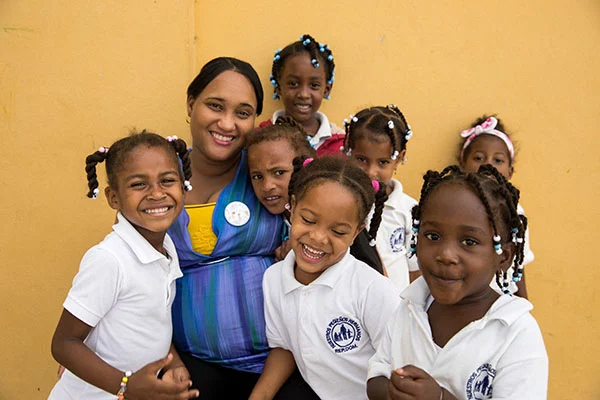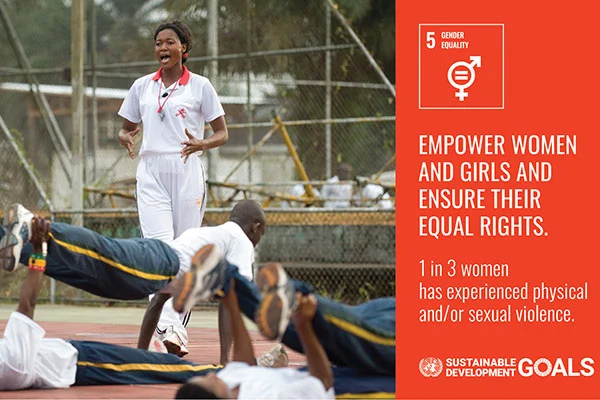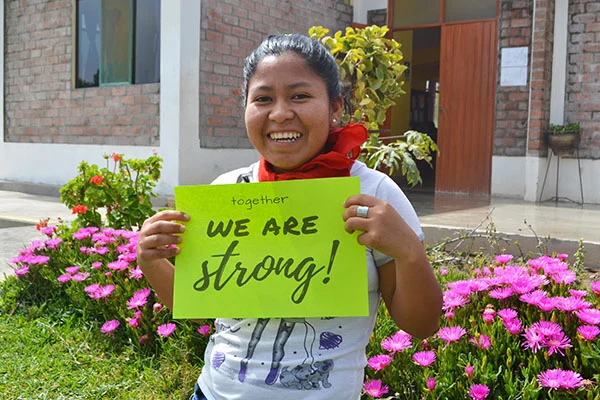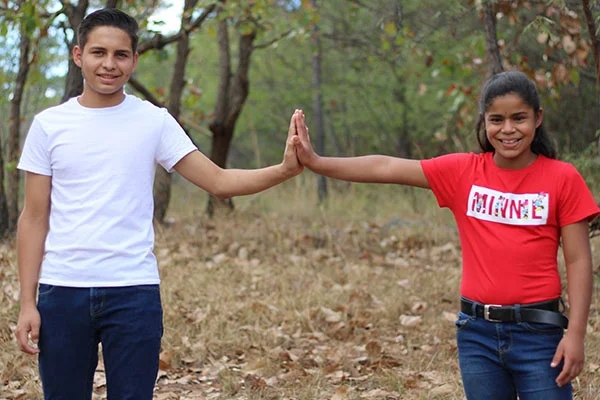2021 International Women’s Day
The world has seen great progress in women’s rights, but in many NPH countries, women and girls still face violence and high drop-out rates from education.
 Markus Streit
Markus Streit
Coordinator of Family Services, NPH International
March 8, 2021
…
For over a century, International Women’s Day, which is held on 8 March each year, has marked a day of celebration and advocacy for women’s rights and equality around the world. The 2021 theme is – “Women in leadership: Achieving an equal future in a COVID-19 world”.
Globally there are definitely many achievements to celebrate. Last year, UNICEF published a report called, “A new era for girls”, which reviews the progress for girls in key dimensions of their lives in the past 25 years. We have all good cause to celebrate this progress, but improvements have been uneven and far from equitable.
WATCH: Ana Cruz*, a 10-year-old girl living in Mata de Plátano, Honduras, speaks about the Chicas Poderosas (“Powerful Girls”) program at the NPH San Jose Family Center
According to the UN, when it comes to education today, fewer girls are out of school, but girls from the poorest households are not benefiting from this expansion in education. In the Latin American countries where NPH serves, the situation for boys and girls in primary education is similar. In Guatemala and Honduras, the drop-out rate in lower secondary education of girls is over 35% and even higher in secondary education. In Guatemala, the number rises to 61% for girls not enrolled in or finishing high school. For two of the poorest countries in Latin America, Haiti and Nicaragua, the UN does not even have statistical data for the last few years, but just observing the situation, girls continue to lose out.
By including the scholarships for children from low-income households and vulnerable neighborhoods and communities, NPH provides education for over 5,000 children on a daily basis in nine countries throughout Latin America and the Caribbean from pre-k to university or vocational school. And all girls and young women have the same opportunities as the boys to finish their education, study or learn a trade. Half of the youths completing their vocational formation with a degree/diploma are girls and even more than half of the graduates from high-school are female.
Girls – especially adolescent and marginalized girls – are far from being free of all discrimination and far from enjoying their full rights. Violence, which should never occur, is still far too common for females. Today, no matter where a girl lives, she is at risk of encountering violence in every space –the classroom, home and community. The societies in the countries in which NPH serves are characterized by very high-levels of violence against girls and women, ranging from domestic violence to organized crime. In 2017 in Guatemala 4,557 girls suffered from sexual violence according to the National Institute of Forensic Science and the estimated number of unrecorded cases is far higher. The femicide rates are terrifying and most of the cases remain in impunity. Femicide, according to the UN, is the extreme and ultimate manifestation of existing forms of violence against women in patriarchal societies. Crimes of this kind reinforce the idea that women are sexual objects and belong to men.
“Young women, women in rural areas, indigenous women and older women, we need to take over the positions that we have been denied historically. We need to have that vision and understand that the power of change lies within us. (…) we are claiming our rights and increasing access to opportunities for all women. The fact that we are women doesn’t make us less valuable; we have lots of ideas and have a lot to contribute to society,” says Marissa Gabriela Solano, a Honduran human rights activist, and a self-proclaimed feminist.
Although education prepares girls for work and life, they need additional skills besides mathematic and cultural techniques like reading and writing: they need critical thinking and confidence in themselves. Girls need to be empowered! Little girls with dreams become women with vision.
Gender-based youth groups in the NPH homes and community projects empower girls and young women. Over the past eleven years, more than 500 youths have participated in international youth conferences about personality formation and service leadership – half of them young women. 24 of the 47 NPHI Seattle Institute graduates are female. Besides intensive English classes they received a thorough leadership training and focused on their professional development during their 10-month stay in the US. All are studying at or graduated from university. Many of them working full-time with NPH. Dora Serrano, a participant in 2013, graduated from university with a degree in psychology. After working full-time for a few years at NPH Honduras as the Family Services Coordinator, as of January 2020 she has been working as the National Director of NPH El Salvador. But women are still underrepresented in the NPHI leadership and hold only 25% of the director’s positions.
So yes, we definitely have to celebrate what girls and women achieved and continue to achieve every day fighting for equality, and as Marissa says, “Men and women are not antagonists, we must rally together in this fight.” All girls deserve full support to be empowered to successfully transition to adulthood, able to make their own informed choices and with the social and personal assets acquired to live fulfilled lives.
Related Information:
• How Your Help Makes an Impact at NPH
• NEWS: Closing the Inequalities Gap to Achieve Social Justice
Photo above: At NPH, all girls and young women have the same opportunities as the boys to finish their education, study or learn a trade. (NPH Dominican Republic)
Photos below: UN Sustainable Development Goal # 5 – Gender Equality. Photo from United Nations.
Although education prepares girls for work and life, they need additional skills besides mathematic and cultural techniques like reading and writing: they need critical thinking and confidence in themselves. (NPH Bolivia)
Girls and boys at NPH Honduras demonstrate what gender equality means to them. Many boys have highlighted strong female role models in NPH and outside the home.













